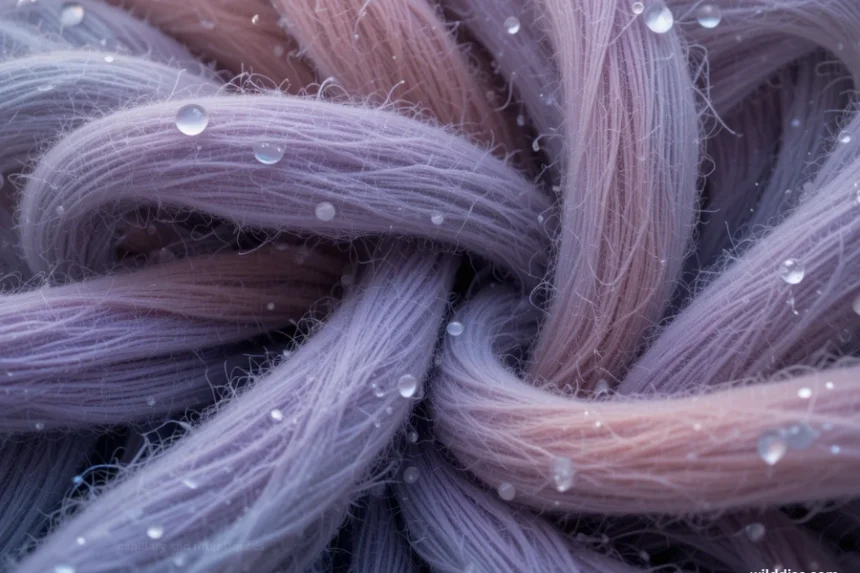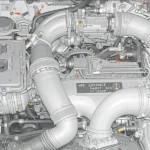Filtration is a critical process across numerous industries, including water treatment, pharmaceuticals, food processing, and manufacturing. Among the various filtration media available, capillary and filter fleeces have gained prominence due to their efficiency, versatility, and cost-effectiveness. This article provides an in-depth examination of capillary and filter fleeces, exploring their properties, applications, manufacturing processes, and advantages.
What Are Capillary and Filter Fleeces?
Capillary and filter fleeces are types of porous, fibrous materials designed to separate contaminants from liquids or gases. They are composed of fine synthetic or natural fibers arranged to create a mesh-like structure that allows fluids to pass while trapping impurities.
Capillary Fleeces
Capillary fleeces are characterized by their fine pore structure, which promotes capillary action—a phenomenon where liquid spontaneously moves through narrow spaces without external assistance. These fleeces leverage capillary forces to draw fluids through the material, making them especially useful in applications requiring passive filtration.
Filter Fleeces
Filter fleeces serve as mechanical barriers that block solid particles, bacteria, or other unwanted substances from passing through while allowing the desired fluid to flow. They are often thicker and denser than capillary fleeces, providing higher filtration efficiencies for larger volumes.
Materials Used in Capillary and Filter Fleeces
The performance of capillary and filter fleeces depends largely on the materials used in their manufacture. Common materials include:
Polypropylene: renowned for its hydrophobic qualities, low weight, and resistance to chemicals.
Polyester: Offers good tensile strength and thermal stability.
Polyethylene: Used for its chemical resistance and affordability.
Natural fibers: Such as cotton or wool, primarily in specialty or bio-compatible applications.
The choice of material influences the fleece’s porosity, chemical compatibility, flow rate, and durability.
Manufacturing Processes
The production of capillary and filter fleeces involves several manufacturing techniques, each contributing to the fleece’s specific properties.
Needle Punching
Barbed needles are used in this procedure to mechanically entangle fibers, producing a dense felted fabric. Needle punching results in strong, durable fleeces with good filtration properties, often used in industrial filters.
Melt Blown Technique
This method involves melting polymer granules and blowing the molten material through fine nozzles to produce microfibers. These fibers are collected on a conveyor to form a nonwoven fleece with high porosity and fine filtration capabilities, ideal for medical and microfiltration.
Spunbond and Meltblown Combinations
Some fleeces are made by combining spunbond and meltblown layers, providing a balance of strength and filtration efficiency, particularly useful in respiratory masks and protective clothing.
Applications of Capillary and Filter Fleeces
The versatility of capillary and filter fleeces makes them suitable for diverse applications:
Water and Wastewater Treatment
Fleeces efficiently remove water of bacteria, suspended particles, and other impurities. Capillary fleeces facilitate passive filtration due to capillary action, while filter fleeces provide a barrier against larger particles.
Medical and Pharmaceutical Industries
In these industries, fleeces serve as sterilizing filters for liquids and gases, ensuring hygiene and safety. For the microfiltration of medications, vaccines, and blood products, their tiny pore diameters are essential.
Food and Beverage Industry
Filter fleeces are used to clarify liquids like juice, beer, or wine, removing sediments without affecting flavor or quality.
Industrial Manufacturing
Fleeces are employed as pre-filters, dust collectors, and separators in various manufacturing processes, protecting machinery and ensuring product purity.
Advantages of Capillary and Filter Fleeces
Choosing capillary and filter fleeces offers several benefits:
High Filtration Efficiency: Capable of removing microscopic particles and bacteria.
Cost-Effectiveness: Affordable production and replacement costs.
Chemical Compatibility: Composed of substances that resistant to solvents, bases, and acids.
Flexibility and Customization: Available in different pore sizes, thicknesses, and materials to suit specific needs.
Ease of Installation: Lightweight and easy to integrate into existing systems.
Factors to Consider When Selecting Fleeces
When selecting between capillary and filter fleeces, consider:
Flow Rate Requirements: Higher flow demands may require specific pore sizes.
Contaminant Size: Larger contaminants are filtered by coarser fleeces, while microfiltration needs finer membranes.
Chemical Compatibility: Ensure the material can withstand operational chemicals.
Operational Environment: Temperature, pressure, and exposure to UV or chemicals influence durability.
Cost and Longevity: Balance initial investment against replacement frequency.
Maintenance and Longevity
Proper maintenance of capillary and filter fleeces is vital for optimal performance:
- Regular inspection for clogging or damage.
- Periodic replacement based on manufacturer recommendations.
- Cleaning methods vary; some fleeces can be backflushed or chemically cleaned, while others are disposable.
Advanced filtration systems may include pre-filters to extend the lifespan of fleece filters and reduce overall operating costs.
Conclusion
Capillary and filter fleeces are indispensable components in modern filtration technology. Their unique properties, material versatility, and broad application spectrum make them vital in industries demanding high purity and contaminant removal. By understanding their differences, manufacturing processes, and selection criteria, users can optimize their filtration systems for efficiency, cost-effectiveness, and durability.
Whether used in water purification, pharmaceuticals, food processing, or industrial manufacturing, capillary and filter fleeces continue to evolve, offering ever-improving performance to meet the challenges of modern filtration demands.



